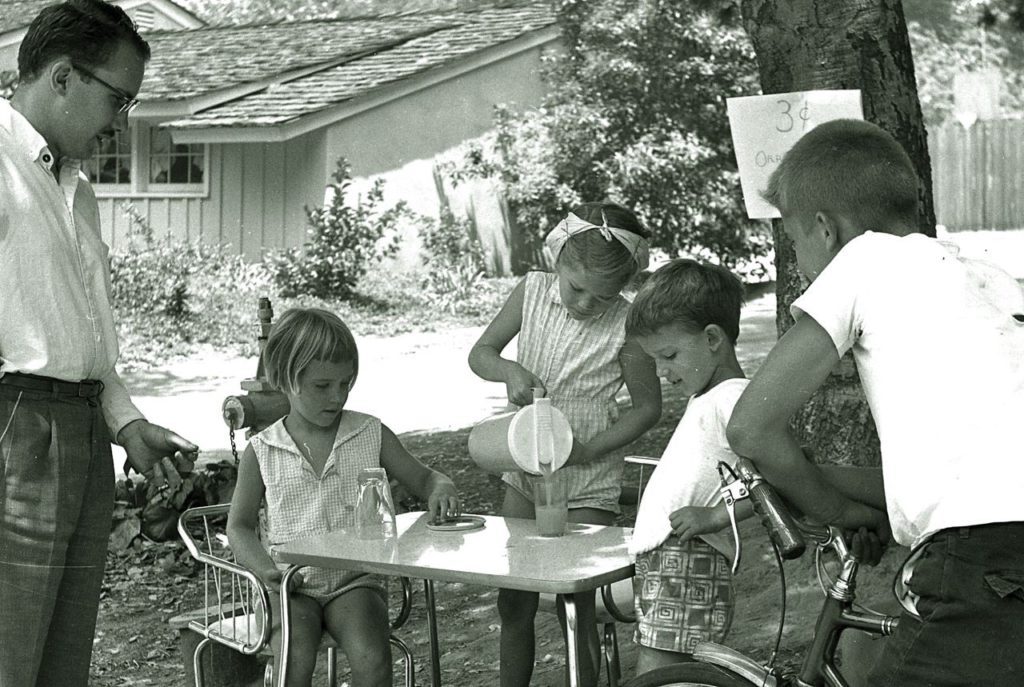Business is Business, software or psychical goods.
No matter if you’re selling software, a house cleaning service or beef jerky there are three things you look at: product, price and who you sell it to.
What people are willing to pay is easy to determine since for most businesses there’s already competition out there.
If there isn’t any competition then most likely it’s a bad sign of no demand in the market.
There’s always an exception to the rule, but taking that path can be ten fold more difficult.
We can define a customer in many ways, but lets stick to basics and point out:
- Who? (age, gender, occupation, education, interests, income level)
- Where? (where are they located)
- When? (when do they want it)
- What? (what do they want)
- Why? (why do they want it)
Ok, knowing what we’re selling, to whom and for how much takes care of the basics.
Now let’s tackle the hard part:
How do I let them know that I have what they need.
Marketing & Distribution.

In the early days of running a business, generating revenue and making sure you have positive cash flow is key.
A healthy balance should be at 10 percent time spent on improving the product or service versus 90 percent on marketing and testing different distribution channels
There’s a million and one ways to approach marketing and with the amount of easily accessible information on the internet I won’t get into the details.
Often enough people forget about leveraging existing pockets of demand.
So, what’s this magical place, where people ready to buy are looking for what I’m selling?
All I’ll say is that it’s been around for centuries and hiding in plain site.
Enter the Marketplace.

If you’re my age or older, then you most likely remember going to the local market as kid. Usually on a Sunday morning with your parents to pick up fresh vegetables, eggs or just listen to the shopkeepers haggle over prices.
The local farmers market is definitely still around, but due to the ever growing need for more convenience, we mostly shop at WholeFoods or Shoprite, get it delivered via services like Instacart or simply just stick to eating out.
By definition, a marketplace connects buyers with sellers and takes a fee for facilitating that.
In the digital age, such marketplaces exist for almost any vertical you can imagine:
- Don’t have enough things on your phone? — App Store by Apple
- Looking for handmade or vintage clothing? — Etsy
- Want to learn how to write code? — Udemy
- Kitchen sink isn’t draining properly? — AngiesList
Most of the above-mentioned examples feature some level of vetting before you’re allowed to join and once you do, your life depends on positive customer feedback. Usually reflected as reviews, star ratings or a numerical score.
That’s also the exact reason why people tend to favor marketplaces.
Taking the least amount of risk while spending money is what in the end drives the marketplace economy.
Of course this breeds cut-throat competition, since your product, design, customer service have to be constantly improving, in order to stay in the game.
Brick & Mortar analogies for days

Lets look at it from a perspective of opening a local burger joint.
If you wanted to open your own standalone restaurant, besides it being a really bad idea (I suggest reading Kitchen Confidential by Anthony Bourdain), you’re looking at insurance, rent, renovation, equipment, food costs, licenses, staffing, decor, deliveries, repairs, cleaning and a laundry list of another hundred or so items before you even get to the most important part. Getting customers in the door.
Now let’s say, I could offer you a way to cut your monthly expenses in half and guarantee a decent amount of foot traffic.
Oh yeah, did I mention they’re already hungry and looking to sink their teeth into some good food.
Sound like a great deal, right?
Well, here’s the catch: the place I have in mind wouldn’t allow you to be the only burger joint around (negotiable). Also building your own brand would be somewhat harder than if you owned the place.
However, you’d have a much higher chance of succeeding in the short term and if all goes well, through building a loyal customer base and positive cash flow to one day owning your own space.
Still interested?
Great!
I’m sure that the various weekend food markets such as: Smorgasburg, Berwick Street Market would be a great place to start.
If you’re in a place that doesn’t have something along those lines, I’m sure there’s a Food Court or Strip Mall somewhere near.
Sure, that’s a less glamorous option but we’re in business to make money and turn a profit, not look cool.
Maximize your chances for Success

If this is your first time around the block and you want to improve your chances of succeeding, then I think that joining a marketplace is the way to go.
You’ll have to most likely give up a nice chunk of your revenue and deal with the existing limitations of the platform.
One way or the other you have to start somewhere and why not do it in a place takes care of the hard part for you.

